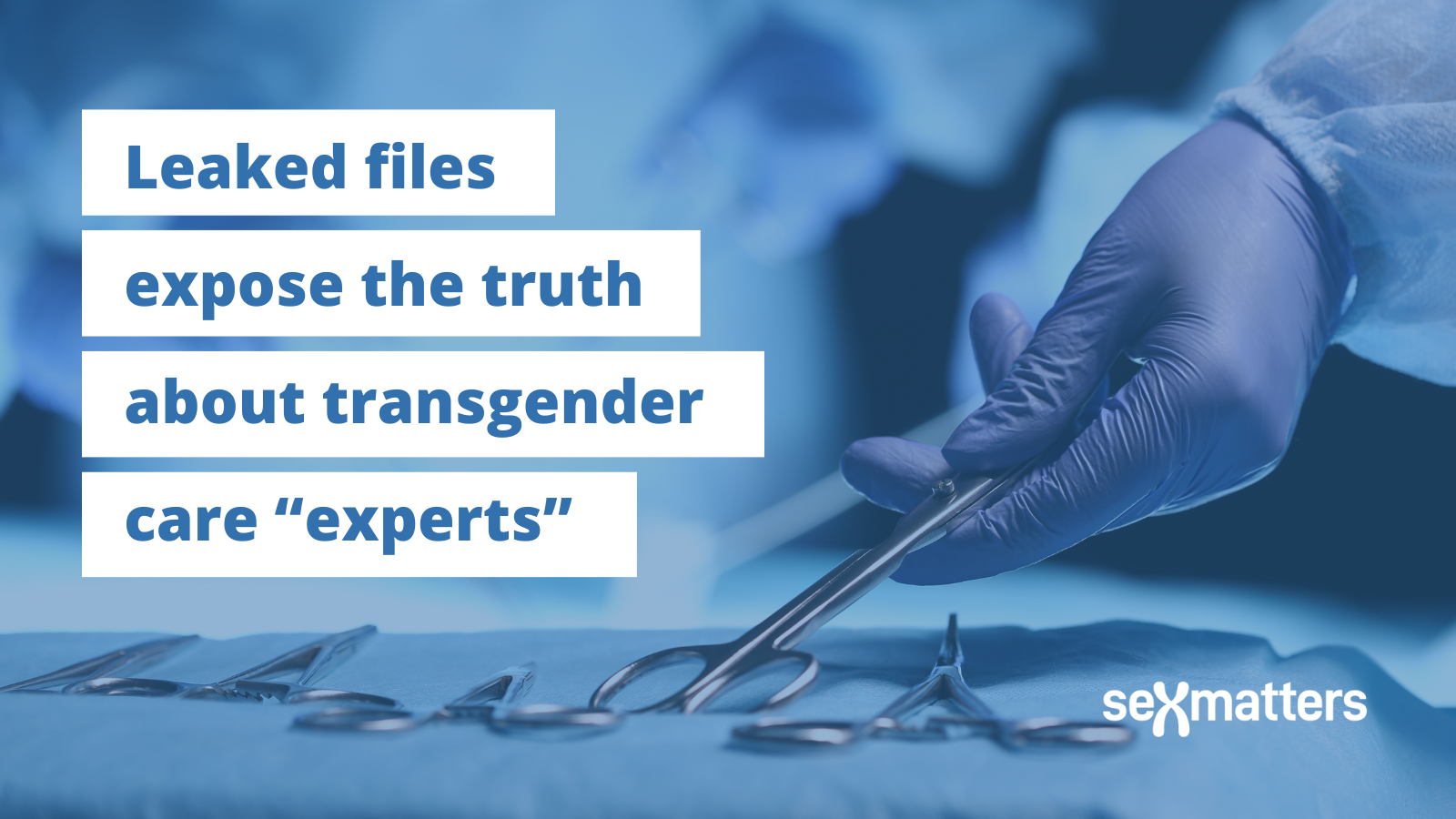WPATH: The truth about “gender-affirming healthcare”

What are the “WPATH files” and why are they in the news?
The “WPATH files” are documents leaked from the internal chatboard of an organisation called the World Professional Association for Transgender Health (WPATH). They shine a light on how so-called “gender-affirming care” or “transgender medicine” is leading to widespread medical malpractice on children and vulnerable adults.
WPATH has been, and continues to be, extremely influential in shaping UK treatment protocols in the NHS. Thousands of children and vulnerable adults are being treated under these protocols. The leaked files reveal that treatments may do more harm than good, and suggest that some clinicians who are members of WPATH know this.
What is WPATH?
Established in 1979, WPATH is an international not-for-profit organisation with almost 2,000 members. It includes some well-known doctors, surgeons and psychologists practising, and promoting, “gender medicine”. Three-quarters of members are based in the USA, with the rest scattered around the world. A significant number are in the UK. WPATH advocates for trans-identifying people to have on-demand access to “gender-affirming care,” a treatment protocol involving hormones, surgeries and, in the case of adolescents, puberty suppression.
WPATH also provides materials aimed at shaping the treatment provided by healthcare professionals working with trans-identifying individuals. The most influential of these are Standards of care – guidelines for the provision of healthcare for gender-distressed and trans-identifying individuals, which it claims are scientific and evidence-based. These cover various aspects of transgender health, including mental health, hormonal therapy, and surgical interventions. The current version, Standards of care 8 (SOC8), was published last year.
What do the files reveal?
WPATH describes its Standards of care as evidence-based and best practice, but these leaked files cast serious doubt on that claim. They show clinicians discussing patients receiving irreversible treatments who seem very unlikely to be able to receive informed consent, including some who are very young, and others who have serious mental-health disorders. Some of the conversations suggest that the clinicians themselves don’t know the long-term effects of treatments. In other conversations, it seems that they do know that cross-sex hormones or surgeries are likely to cause serious harm, but advocate for those treatments nonetheless.
These documents suggest that some WPATH members brush off concerns about long-term patient outcomes, despite being aware of potentially debilitating and even fatal side effects of cross-sex hormones and other treatments.
Taken together, the files paint a disturbing picture of so-called “gender medicine” as neither evidence-based nor safe. And since the first rule of medicine is to do no harm, it is not medicine.
Why does it matter in the UK?
WPATH’s influence is all over the NHS, with the Standards of care shaping how adults and children are treated. This has been going on for more than ten years. In 2013, before the huge growth in gender-confused children in the UK, the Department of Health commissioned a guide to gender-dysphoria services for general practitioners and other healthcare staff. The guide states that it was informed by the WPATH standards of care.
So too was the treatment of children at the now-discredited Gender Identity Development Service (GIDS) at the Tavistock Centre. Parliament’s Women and Equalities Committee conducted an inquiry into transgender equality in 2015. The committee’s report reveals how influential WPATH was in shaping the treatment approach at the GIDS. The report says: “Bernadette Wren, Head of Psychology and Associate Director at the Tavistock Clinic, told us that its treatment protocols are based on WPATH guidelines which are almost universally observed in Europe.”
The NHS’s Standard Contract for Gender Identity Development Service for Children and Adolescents in 2017 (for the period 2016–2020) – its specification for what the service will deliver – repeatedly refers to WPATH’s Standards of care. And a document from the Tavistock clinic for the period between December 2022 and September 2024 says that clinical practice in the gender-identity clinic follows a “modified version of the WPATH Standards of Care”.
The same is true in Scotland. The Sandyford clinic, which treats people referred for gender issues in Scotland, tells adult patients: “Your treatment will be monitored and run in accordance with the guidelines set out in the ‘Standards of Care’ as laid down by the World Professional Association for Transgender Health (WPATH) – and in the Gender Protocol for Scotland.” The children’s treatment guidance does not reference WPATH but does follow its Standards of Care.
The General Medical Council, British Medical Association and Royal College of Psychiatrists all refer to WPATH standards as informing their own. Gender-identity lobby groups like Gendered Intelligence, Mermaids, Stonewall and Gender Identity Research and Education Society (GIRES), who might be expected to demand well-informed healthcare for the people they claim to represent, also promote WPATH as the only acceptable approach – meaning affirmation and medical interventions on demand. This is despite the growing evidence that such treatments can do more harm than good, especially for children and young people.
In short, the UK establishment seems to have swallowed WPATH’s approach whole.
WPATH’s influence goes beyond “gender medicine”
WPATH’s influence goes far beyond treatment protocols in gender clinics. Last year we wrote about how some NHS trusts are now using software from the USA that requires all of us to declare a gender identity, even babies. We now know that this originated with WPATH. The software, called EPIC, normalises the highly contested idea that everyone has a gender identity, and that this may be different from their sex. It throws out the basic fact that there are two sexes, each with a predictable set of body parts: instead it has a checklist of reproductive and other sex organs, to be completed for each patient.
The WPATH files show how people with gender confusion are being let down by the body that claims to be protecting them with its expertise. But EPIC shows that its baleful influence goes beyond gender medicine: it is harming us all.
Find out more…
WPATH in the UK
A list of organisations in the UK influenced by the World Professional Association for Transgender Health, and lobby groups that have pushed its approach to gender medicine.

